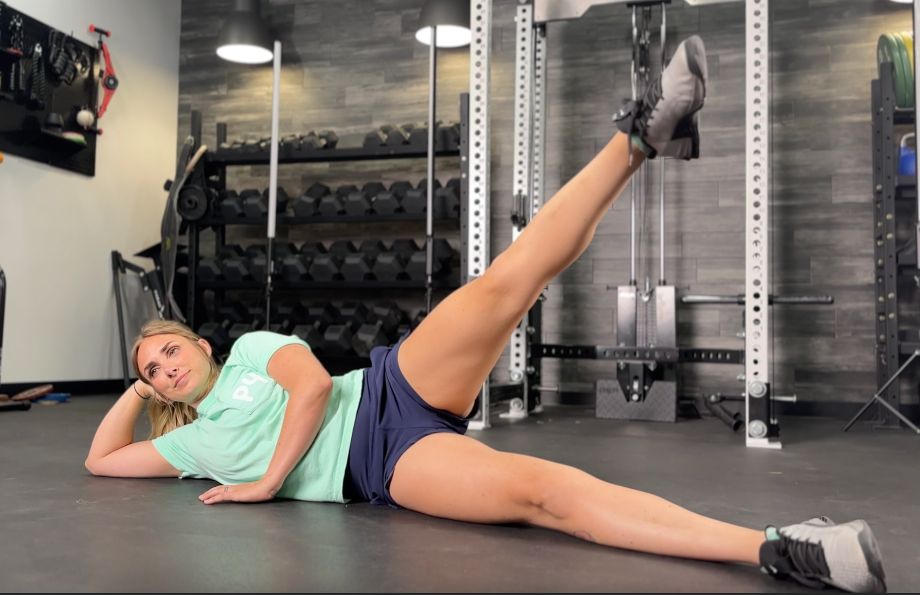We test and review fitness products based on an independent, multi-point methodology. If you use our links to purchase something, we may earn a commission. Read our disclosures.
Plenty of people have heard of Pilates, but have you ever actually tried a Pilates workout?
With an estimated 12 million global practitioners, Pilates continues to enjoy widespread popularity decade after decade, and it’s not because the program doesn’t work!
A Pilates workout might be just the thing you’ve been missing all along, whether you need a beginner workout, or you’re an avid runner looking to enhance their performance or a powerlifter trying to break through a pesky plateau.
Today, we’re giving a brief overview of the Pilates program, discussing what makes it so hard and so darn effective, and giving you a few great mat Pilates exercises to add into your next workout.
What Is Pilates?
Pilates was created in the 1920s by Joseph Pilates as a way for people to increase muscle strength, endurance, flexibility, posture, and balance.
According to a 2011 overview of Pilates published in the Muscle, Ligaments, and Tendons Journal1, “all Pilates exercises flow from the ‘five essentials,’” which are:
- Breathing
- Cervical alignment
- Rib and scapular stabilization
- Pelvic mobility
- Utilizing the transverse abdominis
Pilates uses low-impact exercises, typically relying on the practitioner’s own bodyweight as resistance, to strengthen the core and protect the lumbar spine.
Pilates is also effective for enhancing the mind-body connection, burning calories to assist in weight loss, and improving general health and well-being.
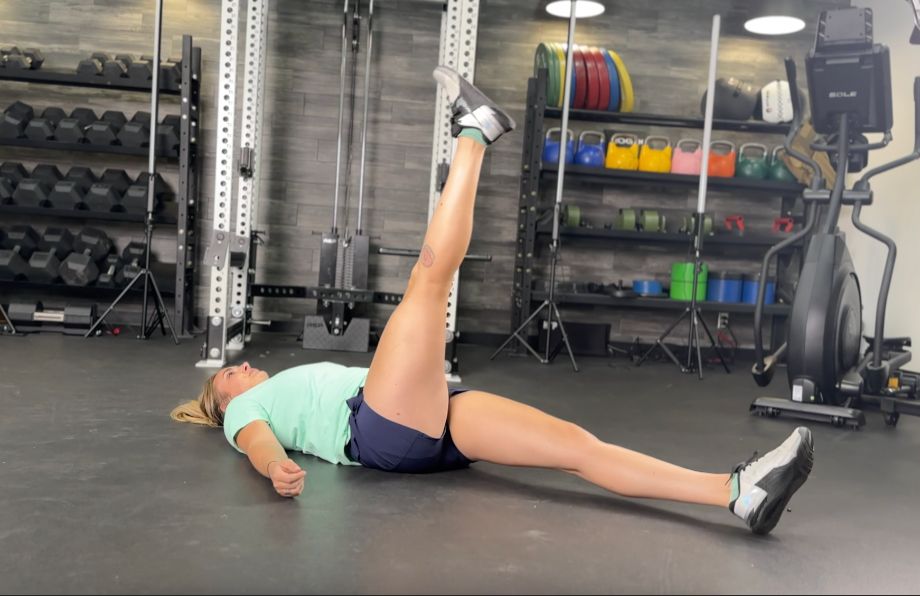
Benefits of Pilates
Practicing Pilates on the reg yields numerous benefits.
Core Strength
Practicing Pilates regularly improves core strength and is widely regarded as one of the best ab exercises. A strong core contributes to better athletic performances, a better quality of life, and reduced lower back pain.
In fact, a 2022 systematic review published in the Journal of Orthopaedic and Sports Physical Therapy2 included 118 trials and nearly 10,000 participants to determine the best exercise options to reduce low back pain.
The study found that core-based exercises produced the best analgesic effect on low back pain. Pilates specifically reigned supreme, reducing pain by 93% and pain-related disability by a whopping 98%.
That’s because Pilates places a heavy emphasis on strengthening deep abdominal muscles, like the transverse abdominis, which improves core stiffness and protects the lumbar spine.
RELATED: The Best Core Exercise Equipment
Mobility and Flexibility
A 2016 study published in the Journal of Sports Medicine and Physical Fitness3 studied the effects of Pilates mat exercises on “dynamic and static balance, hamstring flexibility, abdominal muscle activity and endurance.” Researchers found that Pilates can improve balance, flexibility, abdominal muscle endurance after an eight-week program.
RELATED: The Best Mobility Exercises
Pilates can improve balance, flexibility, abdominal muscle endurance.
According to multiple studies
Isometric Strength
Most exercise includes lengthening and shortening the muscles during movement. The eggheads call that “isokinetic exercise,” and Pilates does include plenty of that.
Pilates also includes isometric exercise, which involves muscle contraction without much, or any, movement at all. Anytime you’re asked to strike a pose and hold it, that’s going to involve and increase your isometric strength.
Isometric exercise is important to overall fitness because the stimulus it produces is vastly different from your traditional eccentric-concentric kind of exercise.
According to a 2022 review published in Healthcare (Basel)4, “isometric training increases strength and the muscles’ ability to produce power,” which improves “muscle strength and flexibility, leading to enhanced performance and reduced injury risk.”
Stability
A 2021 study published in the International Journal of Environmental Research and Public Health5 compared two groups of people, those with Pilates experience and those without, to observe what effect, if any, Pilates had on core muscle activation and stability.
The results determined that “Pilates practitioners activated the abdominal and low back core muscles effectively, and the stability of the pelvis and trunk were better than that of the non-experienced participants.”
RELATED: The Best Balance Boards
Body Awareness
Pilates, like yoga, requires putting the body in various precarious positions. Both moving through each exercise and holding each pose requires tons of body awareness in order to move fluidly and maintain balance.
According to a 2021 trial published in Medicine (Baltimore)6, Pilates ranks among the best programs for improving balance and strength. Studies show Pilates is also useful for older adults looking to reduce their risk of falling7 given the improved sense of proprioception gained from the practice.
Why Is Pilates So Hard?
It makes total sense for a newbie to feel challenged in even the most rudimentary beginner Pilates classes, but what about fitness aficionados?
You’d think your proficiency in other types of strength training like CrossFit, yoga, bodybuilding, and HIIT would translate nicely, but Pilates moves somehow feel significantly more difficult.
Pilates emphasizes moving slowly and with control, extending the phase in which your muscles lengthen and, thus, increasing the amount of work you’re doing during that period of time.
That makes it much harder to “push through” a Pilates workout, whereas you probably could eke out the last few reps of a heavy set of dumbbell curls or drag yourself through the last quarter-mile of your cardio.
Pilates also uses movement patterns that don’t exist in other training modalities, meaning the stimulus you’re providing the target muscles is drastically different by comparison. “Even if you’re fit, you’ll likely still feel challenged when first starting out your Pilates journey,” says certified personal trainer and GGR head of content Kate Meier.
Even if you’re fit, you’ll likely still feel challenged when first starting out your Pilates journey
Kate Meier, certified personal trainer
How Pilates Can Help With Strength Training
Some people prefer one training modality, so it’s fine if you try Pilates, fall in love, and never look back. Others prefer a plethora of tools in their arsenal, each helping them achieve their personal fitness goals.
For those who prefer a multifaceted approach to fitness, Pilates should definitely have a place in your regimen, and here’s why.
Total Body Conditioning
The movements used in Pilates work muscles in your upper body, lower body, core, and more.
That means regularly doing Pilates may provide improvements to your muscle size, strength, and endurance throughout your whole body. It also means those improvements may translate to enhanced athletic performance, both on the playing field and in the weight room.
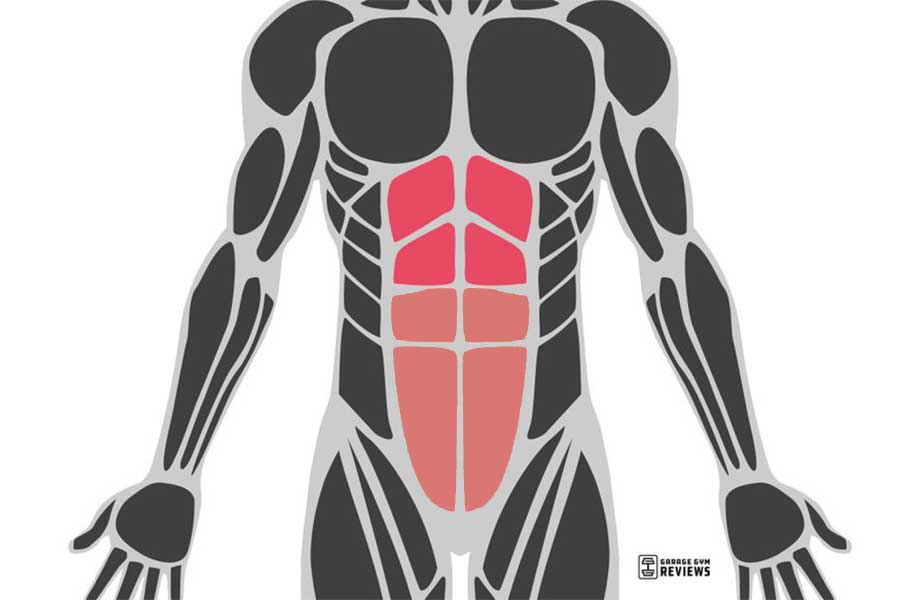
Core Strength for Days
Pilates is a great many things, but it’s one of the best ab workouts, if nothing else.
According to a 2022 study published in Frontiers in Physiology8, improved core strength helps you move more efficiently and generate more force with your movements, two vital components for better lifting weights.
Improved Proprioception
Pilates is also about strengthening the mind-body connection, improving your sense of postural awareness.
A 2018 study published in BMC Musculoskeletal Disorders9 determined that “improvements in postural awareness through multimodal interventions were associated with improvements in pain intensity.”
Combine this with the extensive data that shows Pilates’ effect on reducing low back pain, and you’ll be feeling much better picking up a barbell thanks to the increased proprioception and reduced back pain, all courtesy of Pilates.
Mat Pilates vs Machine Pilates
Regular Pilates practitioners know there are various types of Pilates, some of which are more accessible and beginner-friendly than others. We’re going to boil it down to two main categories— mat Pilates and machine Pilates.
Mat Pilates are performed on an exercise mat, as the name suggests, typically using only the practitioner’s bodyweight with the occasional inclusion of props to add resistance or complexity to the movement. Since all you need is an exercise mat, mat Pilates are significantly more accessible, making them great for home workouts since it requires no specialized equipment.
Machine Pilates, on the other hand, uses various Pilates-specific machines, including the Pilates Reformer and Cadillac, to provide resistance or assistance to the practitioner.
A single look at these machines and you might mistakenly believe that machine Pilates is more technical and, therefore, more challenging. However, the machines used in machine Pilates enable modifications that essentially “do the work” for you, in some scenarios.
Mat Pilates are bare bones, meaning you need your own physical strength and stability to move through the exercises, making them arguably more effective.
RELATED: 5 Best Exercise Mats (2024)
A Mat Pilates Workout to Try
So, are you ready to try a full-body Pilates workout you can get done with basically no equipment?
All you need is a mat, a little floor space, and you’re good to go!
The Hundred
Muscles targeted: Rectus abdominis, transverse abdominis, obliques, pelvic floor, hip flexors, quadriceps
How to do it:
- Lie on your back. Raise your knees and bend them at a 90-degree angle to enter the tabletop position. Tuck your chin and straighten your arms.
- From this position, take five quick breaths in, pumping your arms up and down in short, controlled movements, followed by five breaths out. Repeat until you hit one hundred.
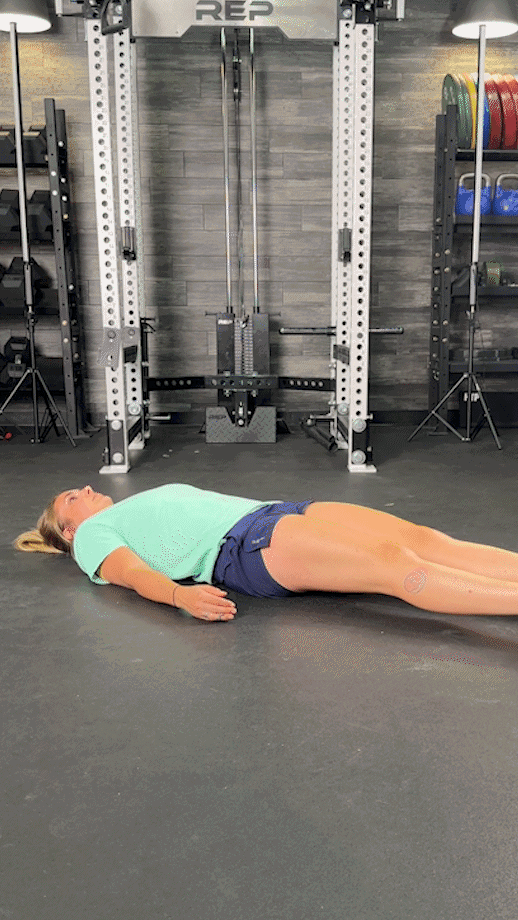
Ab Roll Up
Muscles targeted: Abs, back, thighs, glutes, pelvic floor
How to do it:
- Lie on your back with your legs straight. Raise your arms over your head.
- Curl your body up and towards your toes in one fluid motion, using your abs, not your momentum, to get you through the movement.
- Slowly return to the starting position, keeping your legs in contact with the mat. To modify, you may bend the legs and plant the feet, driving them into the floor to assist the movement.
- Repeat as needed.
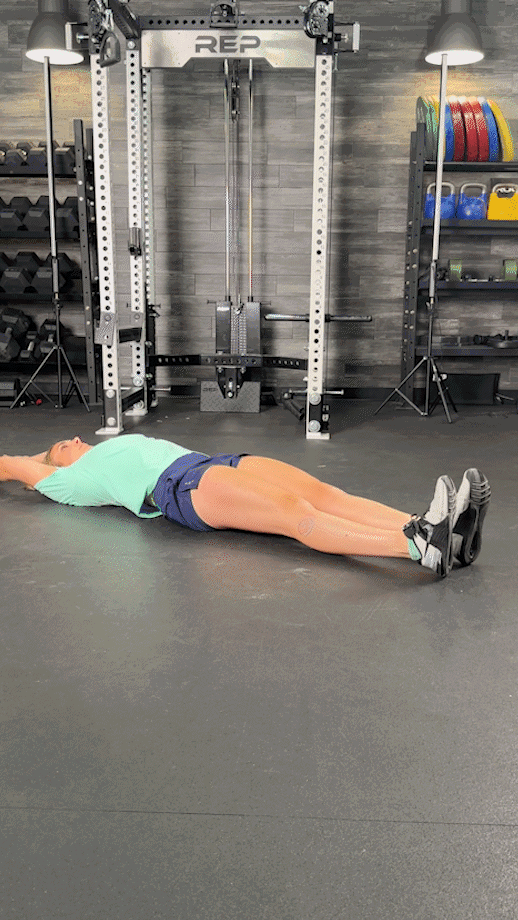
Front Support/Plank
Muscles targeted: Rectus abdominis, transverse abdominis, obliques, trapezius, rhomboids, latissimus dorsi, pectorals, serratus anterior, deltoids, biceps, triceps, quads, glutes, hamstrings, calves
How to do it:
- Get into the push-up/high plank position, either by pushing up from a prone position or walking your hands forward from a standing position.
- You should have a soft bend in the elbow with your arms otherwise straight, your neck and spine neutral, eyes staring straight ahead at the floor, and your core should be tight.
- Hold the position for the desired duration, then release.
- You can also do a plank on your elbows.
RELATED: 13 Plank Exercise Variations
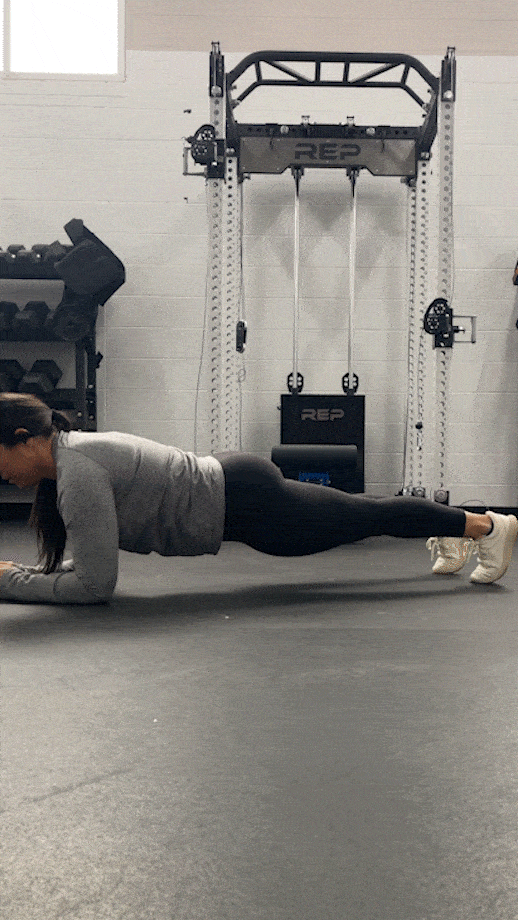
One-Leg Circle
Muscles targeted: Abdominal muscles, quadriceps, hamstrings
How to do it:
- Lie on your back.
- Bring your right knee into your chest, then extend it straight up toward the ceiling. Pull your ab muscles in, keeping your lower back in contact with the mat.
- Move your right leg across the body and around in a circular motion.
- After completing your desired number of reps, reverse the motion and repeat the set.
- Bring the right leg down, then do it on your left leg.
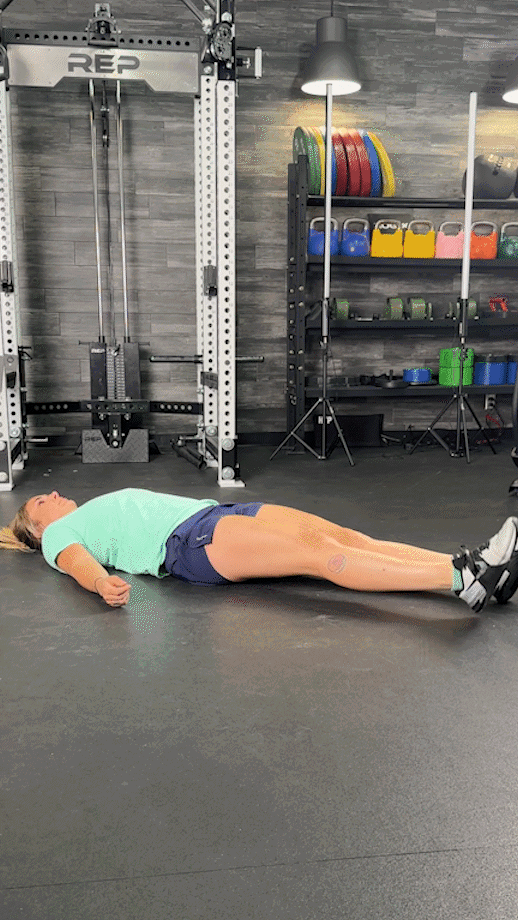
Open Leg Balance
Muscles targeted: Quadriceps, glutes, hamstrings, hip flexors
How to do it:
- Stand with your feet together.
- Lift one foot off the ground. You may use a bar, railing, chairback, or other study object for support if needed.
- Hold for the desired duration, then place the foot back down.
- Repeat for the other side.
RELATED: Great Exercises for Leg Day
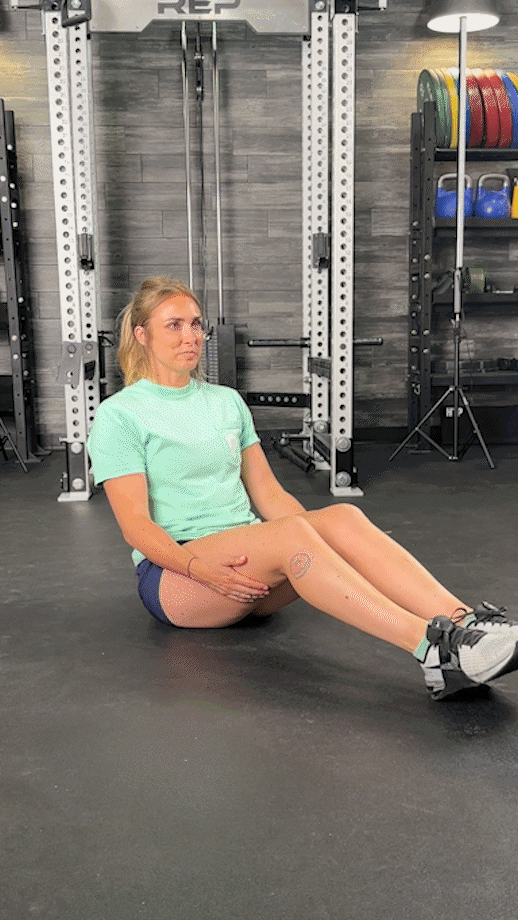
Side Kick Series
Muscles targeted: Abdominal muscles, hips, glutes, and both outer and inner thighs
How to do it:
- Your starting position involves lying on your side, forming a straight line from shoulders to ankles. Use one hand to support your head with your other hand flat on the mat.
- Move your legs slightly forward to form an angle. This will protect your lower back.
- For the front and back kick, start by lifting your top leg a few inches. Bring the leg forward, keeping the foot flexed, and do a small kick. Now point your toes, and bring the leg back to the starting position.
- For an up and down kick, lift your top leg, with your foot flexed, until it’s approximately hip height. Point your toes and lower the leg back down. Repeat as needed.
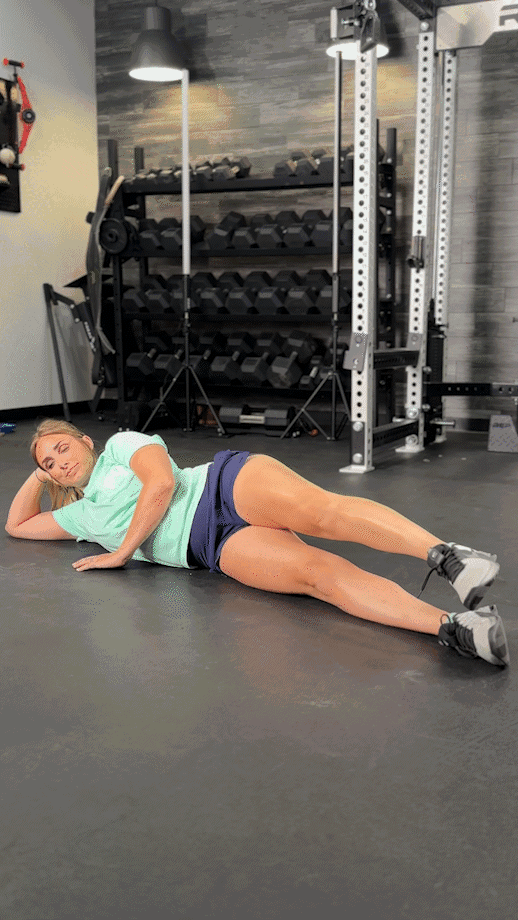
FAQs: Pilates Workout
How can I do Pilates at home?
You don’t need to schlep to a Pilates studio to get a great Pilates core workout. There are many at-home Pilates workouts available online through popular streaming platforms.
Even without the guidance of a Pilates instructor, you’ll often only need an exercise mat and a little know-how to perform a comprehensive Pilates routine like the one we laid out above.
Is Pilates better than yoga?
There are many similarities between yoga and Pilates, and both will provide good results for most people if practiced regularly and correctly.
We recommend giving both a try and deciding which one resonates with you more.
How do you do Pilates without a machine?
The Pilates Reformer can add resistance or provide support to make exercises more or less challenging, but many Pilates exercises can be performed without it.
All you need is an exercise mat, a little bit of floor space, and your lovely self to do movements like the one-leg circle, open leg balance, and plank.
Is Pilates effective?
Pilates is overall a very effective way to build strength throughout the whole body, improve flexibility and mobility, increase body awareness and balance, and enhance all-around well-being.
But don’t take our word for it! Try a Pilates class and see for yourself!
References
1. Kloubec J. Pilates: how does it work and who needs it?. Muscles Ligaments Tendons J. 2011;1(2):61-66. Published 2011 Dec 29.
2. Fernández-Rodríguez R, Álvarez-Bueno C, Cavero-Redondo I, et al. Best Exercise Options for Reducing Pain and Disability in Adults With Chronic Low Back Pain: Pilates, Strength, Core-Based, and Mind-Body. A Network Meta-analysis. J Orthop Sports Phys Ther. 2022;52(8):505-521. doi:10.2519/jospt.2022.10671
3. Kibar S, Yardimci FÖ, Evcik D, et al. Can a pilates exercise program be effective on balance, flexibility and muscle endurance? A randomized controlled trial. J Sports Med Phys Fitness. 2016;56(10):1139-1146.
4. Widodo AF, Tien CW, Chen CW, Lai SC. Isotonic and Isometric Exercise Interventions Improve the Hamstring Muscles’ Strength and Flexibility: A Narrative Review. Healthcare (Basel). 2022;10(5):811. Published 2022 Apr 27. doi:10.3390/healthcare10050811
5. Lee K. The Relationship of Trunk Muscle Activation and Core Stability: A Biomechanical Analysis of Pilates-Based Stabilization Exercise. Int J Environ Res Public Health. 2021;18(23):12804. Published 2021 Dec 4. doi:10.3390/ijerph182312804
6. Patti A, Zangla D, Sahin FN, et al. Physical exercise and prevention of falls. Effects of a Pilates training method compared with a general physical activity program: A randomized controlled trial. Medicine (Baltimore). 2021;100(13):e25289. doi:10.1097/MD.0000000000025289
7. Długosz-Boś M, Filar-Mierzwa K, Stawarz R, Ścisłowska-Czarnecka A, Jankowicz-Szymańska A, Bac A. Effect of Three Months Pilates Training on Balance and Fall Risk in Older Women. Int J Environ Res Public Health. 2021;18(7):3663. Published 2021 Apr 1. doi:10.3390/ijerph18073663
8. Luo S, Soh KG, Soh KL, et al. Effect of Core Training on Skill Performance Among Athletes: A Systematic Review. Front Physiol. 2022;13:915259. Published 2022 Jun 6. doi:10.3389/fphys.2022.915259
9. Cramer H, Mehling WE, Saha FJ, Dobos G, Lauche R. Postural awareness and its relation to pain: validation of an innovative instrument measuring awareness of body posture in patients with chronic pain. BMC Musculoskelet Disord. 2018;19(1):109. Published 2018 Apr 6. doi:10.1186/s12891-018-2031-9
Further reading

Looking for the best treadmill under $1,000? We got you. Check out our top seven picks for some stellar, budget-friendly options. Read more

In this NordicTrack C2200 treadmill review, we look at an affordable, discontinued walking treadmill with neat features. Read more

Super greens powder side effects include bloating, diarrhea, and even heavy metal toxicity. Read more

Our JOROTO X2 Indoor Cycling Bike review takes a look at this popular budget-friendly studio cycling bike. Read more

